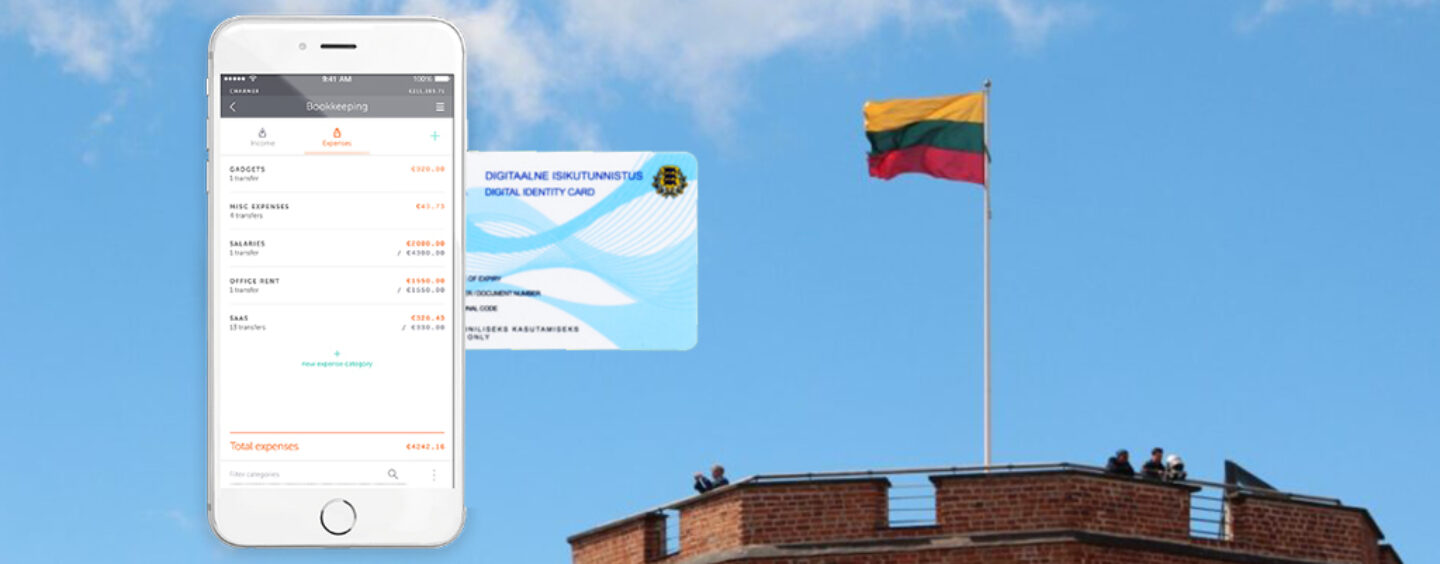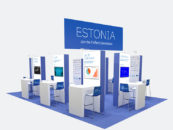Lithuania is following on the steps of its Baltic neighbor Estonia and introduced an e-residency program for foreigners.
According to a report by LRT, the Lithuanian government has passed a legal amendment allowing foreign nationals to obtain the status of e-resident starting January 2021.
E-residents will receive a digital identity identification that will give them online access to a range of administrative, public, and commercial services. These will be able to set up companies, open bank accounts and declare taxes online.
According to Eimutis Misiunas, Lithuania’s interior minister, the application procedure for the e-resident status, handled by the country’s migration department, would be “simple and quick.”
He believes the initiative will improve the domestic business environment and attract foreign companies and entrepreneur to the Baltic state.
“Introduction of e-residency would allow faster and more convenient exchange of data, of course, not putting safety aside,” Misiunas was quoted in a statement. “It would also help develop more convenient digital services.”
“We see how the world is moving, how mobile it is and how electronic services, fintech services are developing. We must make it possible in Lithuania, too,” he added.
In 2014, Estonia pioneered the e-residency concept, launching a program that allows non-residents to apply for a smart ID card and providing the same access to Estonia’s various electronic services that a physical resident would be given.
Estonia’s e-Residency program has been widely praised for being forward-thinking and ingenious, considering that the proposition of digital nomads, freelancers and startup entrepreneurs has considerably increased over the past years.
Malaysia pilots visa program for blockchain freelancers

Image: Digital nomad, Pexels.com
Another country that’s looking to attract this demographic is Malaysia.
In June, the Malaysia Digital Economy Corporation (MDEC) announced that it had been piloting a short-term work visa program for tech freelancers. The move aims to fulfil the domestic demand for blockchain talents, as a first step, and attract foreign talents to work in the Southeast Asian country, reports the Star Online.
Norhizam Abdul Kadir, vice-president of growth ecosystem development at MDEC, said proposal papers for the Digital Freelancer Programme had been submitted to the immigration department and the home ministry.
“We will be kicking [the program] off starting with blockchain jobs,” Norhizam said during a press conference at the Malaysia Tech Week 2019, held in Bangsar South, last month. “The number of Visas to be issued depends on the projects that will be run by blockchain companies in Malaysia.”
MDEC said the new program aims to attract high-skilled talents in emerging technology such as blockchain, but also artificial intelligence (AI) and cyber security, and allow them to work with Malaysian technology companies for three to 12 months.
Norhizam said the program would leverage off the Professional Visit Pass (PVP), which allows foreign talents with professional qualifications or skills to stay in Malaysia for up to 12 months to provide services, or undergo practical training with a Malaysian company on behalf of an overseas company.
He said MDEC will work with blockchain organization the Nem Foundation and Estonian cross-border job marketplace Jobbatical, the former being in charge of defining the talents needed, and the latter being responsible of providing qualified candidates. Lithuania’s immigration department would then provide selected prospects with a PVP, while MDEC helps facilitate the whole process.
The Digital Freelancer Programme is set to roll out before the end of 2019, and isn’t the first initiative targeted at digital nomads in Malaysia.
Under the Malaysian Tech Entrepreneur Programme (MTEP), introduced in 2017 by MDEC, digital nomads are able to live in the country from one to five years. The program was launched with the intention of growing the country’s tech startup ecosystem and turn it into a regional tech startup hub.
Estonia has also been looking to introduce its own digital nomad program. Set to roll out later this year, the country’s Digital Nomad Visa will allow individuals to reside long-term and work remotely in Estonia. The country is looking to issue around 1,400 Digital Nomad Visas yearly.
This article first appeared on Fintechbaltic.com, Featured image: Lithuania flag, Vilnius, Lithuania, PxHere.com.







